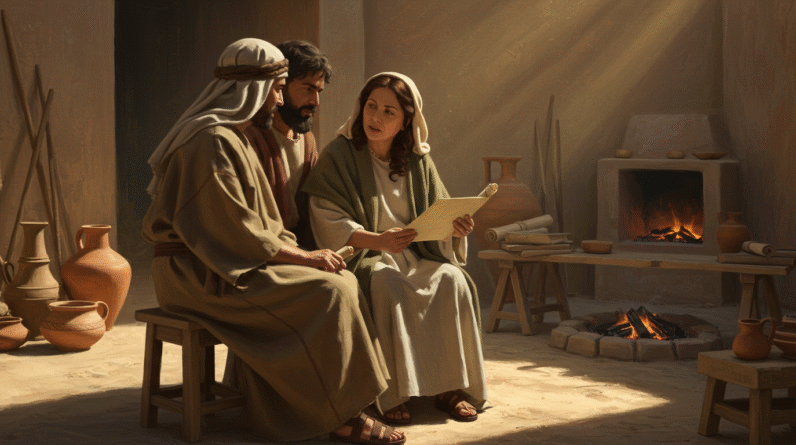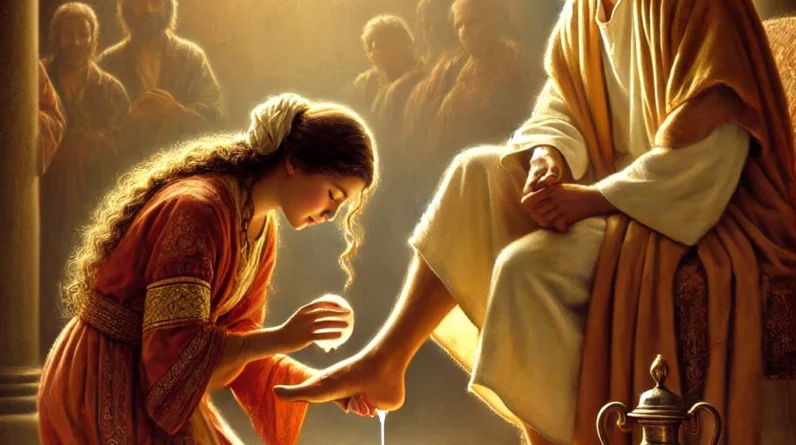Explore the inspirational role of Mary in Romans, her impactful story, and how it resonates with modern believers seeking meaning and courage in their faith journey.
The Story of Mary in Romans: Inspiration for Today
Introduction
In the early days of the Christian church, women played essential roles, often defying cultural norms to contribute to the growing spread of the Gospel. Their narratives, as preserved in the New Testament, reveal the courage and commitment required to lead in a predominately male sphere. These women often stood at the periphery, their names mentioned briefly but their impact was undeniably profound. As we delve deeper into the story of Mary, highlighted in the Epistle to the Romans, we discover not only an individual life of dedication but a broader narrative of how women’s contributions were invaluable to the nascent Christian movement. As modern believers seek inspiration, these ancient accounts hold valuable lessons and a call to action, relevant even today.
Historical and Biblical Context
Women in the 1st-Century Church
The role of women in the 1st-century church was both dynamic and challenging. In a time when cultural norms largely restricted women’s participation in public life, the early Christian movement offered a space where their influence could shine. Despite societal constraints, women were pivotal in spreading the Gospel. From hosting church gatherings to supporting missionary journeys, they served as the backbone of many ministries. Scriptural references highlight this, underscoring God’s inclusive vision for His church without gender biases. For example, Paul acknowledged several women leaders in his letters, reflecting their essential positions within the early church framework.
Biblical Affirmation of Women in Ministry
Throughout the New Testament, there are affirmations of women in leadership and ministry roles. In passages like Galatians 3:28, Paul speaks to the equality found in Christ Jesus, stating that “there is neither Jew nor Gentile, neither slave nor free, nor is there male and female, for you are all one in Christ Jesus.” This verse reveals a transformative vision of a community where traditional barriers are transcended, including those relating to gender. Such perspectives provided the theological underpinning for the acts of faithful women throughout the early church history.
Profile of a Faithful Woman in Ministry: Mary in Romans
A. Name and Identity
Mary’s name is etched into the pages of Paul’s epistle to the Romans, specifically Romans 16:6, where she is mentioned with warmth and respect for her efforts. While details on her life are scant, her inclusion in Paul’s letter provides us with insights into her significant role within the early church community. Historical records may not elaborate extensively on her background, but her identity as someone active in ministry is undeniable.
B. Ministry and Contribution
Mary is noted for her hard work, possibly indicating a wide array of contributions. The Greek word used for “worked very hard” suggests strenuous labor and dedication, hinting at her involvement in various church activities. This could range from providing hospitality to leaders, such as hosting gatherings in her home, to actively participating in evangelistic efforts. Her dedication was such that Paul felt compelled to specifically mention it, highlighting the significance of her efforts in the Roman Christian community.
C. Lessons from Her Life
Modern believers can draw myriad lessons from Mary’s commitment. Her story is a testament to the power of dedication and service. In an era where public acknowledgment of women was limited, her mention by Paul signifies the value placed on her contributions. Her conscientious service, despite cultural limitations, invites today’s women in ministry to persist in their callings. Mary’s unwavering faith and acts of service serve as a reminder that one’s identity in Christ transcends societal barriers.

Impact on the Early Church
Mary’s efforts, though briefly noted, had a ripple effect on the early church. Women like her played key roles in facilitating the Gospel’s expansion across regions by supporting logistical needs, encouraging missionary work, and nurturing community growth. Their relationships with apostles and church leaders were crucial; they provided both emotional and material support, enabling the broader mission to flourish. Historical records and traditions continue to shed light on the legacy these women left behind, ensuring that their contributions are remembered and honored.
Application for Today
Encouragement for Women in Modern Ministry
Mary’s narrative encourages women in ministry today to embrace their roles with confidence and dedication. Her life exemplifies that service, regardless of recognition, is invaluable to the broader mission. Her story is a beacon of perseverance in today’s landscape, where cultural norms have evolved but challenges remain. It encourages believers of all genders to recognize, support, and empower women who feel called to serve in various capacities.
Practical Steps for Following Her Example
To emulate Mary’s example, practical steps might include offering hospitality in your church community, volunteering for behind-the-scenes roles that ensure operations run smoothly, or simply reaching out to support others in their ministry journeys. For churches, it’s crucial to foster environments where women’s contributions are recognized and celebrated, encouraging diversity in leadership and ministerial roles.
Conclusion
The story of Mary in Romans is a powerful reminder of the impact one individual can have through dedication and service. Though not exhaustively recorded, her life speaks volumes of faithfulness and inspires believers today to pursue their callings with courage. As we conclude, we are reminded of Romans 12:6-8: “We have different gifts, according to the grace given to each of us.” Let us, therefore, honor these gifts in each other and pursue a mission that values every member of the body of Christ.
Acknowledgment: All Bible verses referenced in this article were accessed via Bible Gateway (or Bible Hub).







